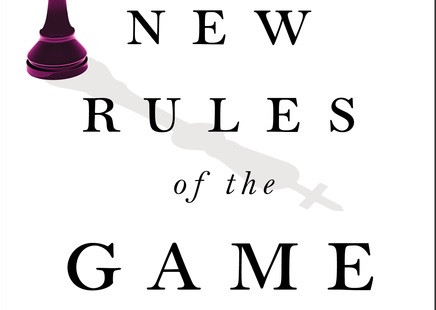
New Rules of the Game, Part I of II
My Introduction to Business Brinksmanship
In the early days of building HGTV, I asked my CEO, Ken Lowe, to accompany me on a sales call. It’s often a good tactic to bring the big brass on early calls, signaling your respect for the opponent. We traveled to Denver, home of the biggest and baddest prospect during that time, called Tele-Communications Inc. (TCI). They played ridiculous mind and leverage games in doing deals, and it was an ugly, bloody process to get business done. However, TCI had the most subscribers in the cable industry, and we needed access to their systems to get adequate distribution for HGTV.
When we arrived we were ushered into a waiting room, where we proceeded to do just that—wait, for two hours. Upon inquiring, we learned our client had made a dental appointment he’d forgotten to tell his assistant—or us—about. I figured then that this would end (if it ever began) with some serious brinksmanship at play. We were finally brought into the conference room and the client walked in. I looked at his teeth. No drooling, no pearly whites. Likely no dental appointment.
We quickly got down to business. He stated his company’s position, which was ridiculous. Not a big surprise, given with every passing year their reputation as bullies gained steam in the industry. Even given that, I was surprised at how intransigent he was being. His edicts were nonstarters. I knew there was only one way to play this. After about fifteen minutes, I stood and declared the meeting over. Always a cool customer, Ken stood and we walked away. By the look on my potential client’s face, I could tell he saw I’d called an audible.
As Ken and I climbed into the rental car he asked: “Susan, why did that meeting go so badly?” Ken was accustomed to civilized people, which wasn’t exactly the norm in cable TV. When the industry was growing up in the 1970s and 1980s, there was fraternity and shared common interests; later it was all about one-sided wins.
“It hadn’t gone badly,” I told Ken. “Actually we won that round. They wanted us to beg. We needed to tilt the power in our favor. That was just round one.” TCI called a few weeks later. It took two long years to close that deal but we got it done, and it brought us the needed national distribution footprint, plus tens of millions of dollars to HGTV.
It was just this kind of deal making in which you can perfect the art of business brinksmanship. These situations may seem worrisome when you’re in them, but in fact, they are good, healthy challenges that will test and grow your mental agility. This is the work that will help you to see that business is one big game. Doing deals provides a thrilling adrenaline rush. After every session you can evaluate what was accomplished and whether that time spent was a win or a loss. And as you enter in such deals and evaluate your own performance, you’ll begin to see the impact of brinksmanship strategies. If it was a team negotiation, evaluate the session together, regroup, then go back in for the next round.
Brinksmanship is a strategic process of outsmarting your opponent to get the win. Ideally you want to engage in win–win outcomes for both sides, but sometimes the person across the table wants to sweep up all the chips. This was the environment in the cable TV industry and perhaps where you work as well. Try for the win–win, but if that’s not happening, you’ll need brinksmanship strategies to secure the best possible deal.
The strategies involved in brinksmanship most closely pattern thinking games, like chess, checkers, and cards. Chess is especially relevant here because it might be the most cerebral, yet strategic, game around. Case in point are the winning strategies of women’s world chess champion, Hou Yifan of China. As of this writing, she is close to being named to the top 100 of all chess champions, men and women. Only one other woman has ever attained such stature. At a recent tournament, she played former women’s world champion Antoaneta Stefanova of Bulgaria. Antoaneta lost to Hou because her strategy was to postpone castling to get to Hou’s pawn, which allowed Hou to use some brinksmanship to attack and win.
In business, brinksmanship comes into play with a wide range of jobs. Most line jobs will require deal making, whether you’re in sales or product development or are head of a division or department. You will find yourself negotiating with clients and vendors for the best deals you can bring back to your company. You engage in a process of role-plays and rehearsals and gather the opponent’s facts and figures. Then, like a soccer player who visualizes where she wants the ball to go before she kicks it, you visualize where you want to end up. You begin at the end, determining what the expected outcome should be through management’s guidance or the financial parameters already laid out for you, like an internal rate of return (IRR). It’s best to work with a range of acceptable outcomes, from the least desirable (or “bottom”) to the most desirable, so you can be more creative and agile while you are closing in on the win. Whatever your most desirable outcome is, start above it when you are engaging your opponent.
Excerpted from NEW RULES OF THE GAME: 10 Strategies for Women in the Workplace by Susan Packard, with the permission of Perigee/Penguin, a division of Penguin Random House. Copyright © 2015.
Recommended
-
Getting What You Want At WorkDecember 20th, 2024
-
Fall 2024 EventNovember 19th, 2024
-
Pink ProgramOctober 20th, 2024
-
Influential LeadershipOctober 20th, 2024
-
REGISTER HERE FOR THE UPCOMING...September 19th, 2024















